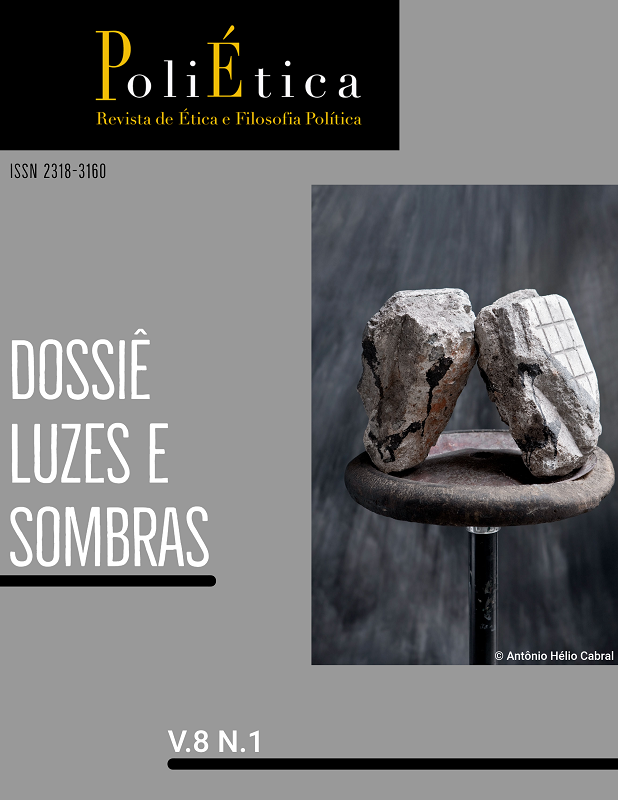Nas Teias da Fortuna e nas Amarras do Político: Antropologia Política em Niccolò Machiavelli
DOI:
https://doi.org/10.23925/poliética.v8i1.46919Palavras-chave:
Machiavelli, Antropologia, Fortuna, Virtù, UmoriResumo
Estudam-se as formas de entendimento do humano e as decorrentes concepções políticas no corpus de Niccolò Machiavelli. O humano é apresentado nesses escritos mediante ambivalências, pois evidenciam características pessimistas e também possibilidades para a fundação da ordem, para o amor à pátria e para a realização social. Entre inimizades, traições, simulações, ingratidões e violências, o humano é compreendido em meio às devastadoras ações da Fortuna, mas também por possuir a adequada Virtù e ser capaz de força, ambição, vontade de glória e astúcia em constantes combates contra a degeneração e a corrupção. Vivendo em constates mudanças, em paixões e em contradições, o humano deseja mais do que pode obter; das leituras de Tito Lívio e da história recente das terras itálicas, esse autor florentino constata a existência de dois Umori no tecido social que devem ser satisfeitos para a obtenção e manutenção da ordem.


